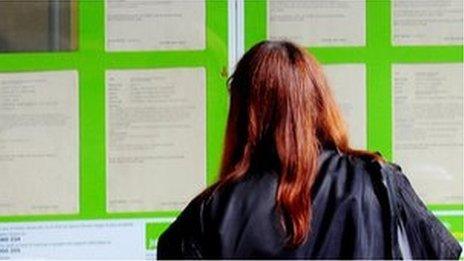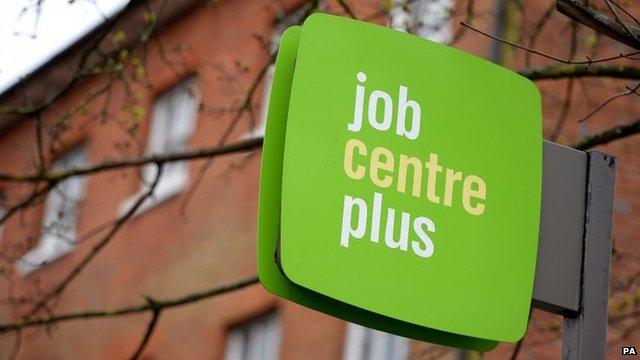Recession 'widening gender pay gap'
- Published

More than 820,000 more women have moved into low paid, insecure jobs since the start of the recession in 2008, according to a new report.
The Fawcett Society said the employment changes are fuelling a widening "inequality gap".
One in eight low paid women now describe themselves as on a zero hours contract, said the campaign group.
But Nicky Morgan, Minister for Women and Equalities, said the government had improved prospects for working women.
The Fawcett Society's survey of 1,000 low paid women, external found that almost half felt worse off than five years ago and nearly one in 10 had taken out a loan from a pay day lender in the past year.
The society said increasing levels of women in low paid work, along with the declining value of low pay, was contributing to a widening inequality gap between women and men.
The gender pay gap rose for the first time in five years, and now stands at 19.1% for all employees, it said.
'Shut out'
Dr Eva Neitzert, deputy chief executive at the Fawcett Society, which campaigns for women's equality and rights, said: "The evidence is clear, after five years of decline, the UK economy is back on the upswing. Employment is up, unemployment is down and GDP is improving.
"However, as our research shows, low paid women are being firmly shut out of the recovery. The numbers of women in low paid, insecure work are still alarmingly high," she said.
But, although Ms Morgan acknowledged that the gender pay gap was too high, she insisted that employment prospects for women were improving.
"We're committed to delivering a long term economic plan that works for women," she said. Measures such as the right to request flexible working and the extension of free childcare to 15 hours a week were making a difference, she said.
"As a result we're seeing more women in full time work than ever before and although the gender pay gap remains too high, it is narrowing and for full-time workers under 40 is almost zero," Ms Morgan said.
However, Gloria De Piero, Shadow Minister for Women and Equalities, said: "It's clear that this isn't a recovery for working women. Under David Cameron and Nick Clegg, more women are struggling on low pay, in insecure jobs and not getting the hours they and their families need."
- Published13 August 2014

- Published13 August 2014
